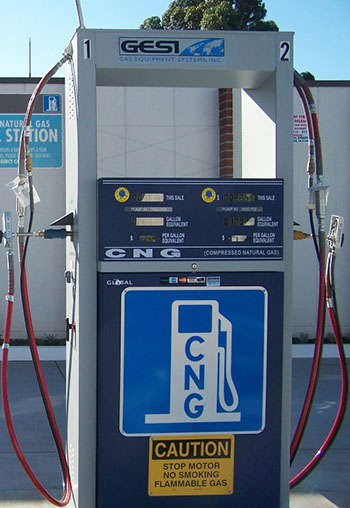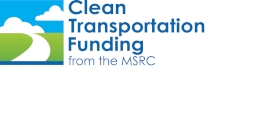 This year's Work Program is bigger and better, with more than $22 million in Clean Transportation Funding in nine project categories available, making this one of the most diverse Work Programs ever. Some of the categories are tried-and-true programs that continue to be the cornerstone of the MSRC's annual Work Program; however, some of the categories are new and reflect the changing transportation needs and new technologies at work.
This year's Work Program is bigger and better, with more than $22 million in Clean Transportation Funding in nine project categories available, making this one of the most diverse Work Programs ever. Some of the categories are tried-and-true programs that continue to be the cornerstone of the MSRC's annual Work Program; however, some of the categories are new and reflect the changing transportation needs and new technologies at work.
The three mainstay programs in the FY 2010-2011 Work Program are the Local Government Match Program, the Alternative Fuels Infrastructure Program, and the On- and Off-Road Engine Repower Program. The Local Government Match Program has $5 million available on a first-come, first-served basis to co-fund clean air projects implemented by cities and counties within the South Coast Air District that utilize their local AB 2766 Subvention Funds. The most popular examples of eligible clean air projects are alternative fuel infrastructure and vehicles. For the first time, applicants will be required to submit their proposals online via the MSRC's soon-to-be-released online submission feature, saving applicants time and reducing emissions. The application package for Local Government Match is expected to be available in March.
The Alternative Fuels Infrastructure Program is offering up to $5 million for the construction of new CNG and LNG refueling stations. Expansions of existing stations are also eligible. The MSRC's goal in funding natural gas stations is to fund the alternative fuels that currently have the most commercially available vehicle and engine projects. Like the Local Government Match Program, funding for eligible projects will be made on a first-come, first-served basis and the application package is expected to be available in March.
The third program has $3.5 million available to repower off-road and $3.5 million to repower on-road (including transit buses) natural gas engines, targeting older "legacy" fleets to maximize emission reductions and cost effectiveness by extending the lifespan of existing alternative fuel engines. Solicitation documents are expected to be released in late spring.
Incentives for school buses also return as a work program category this year. This time, two types of funding are available: $1.5 million to help offset the cost of purchasing alternative fuel school buses, which will be implemented by qualified vendors; and $1.5 million for the School Bus Life Extension Program for school districts to install new natural gas engines and fuel tanks in existing natural gas school buses typically purchased about 10 years ago. The purpose of this program is to extend the life of the buses and reduce emissions without the need for substantial capital investment that would come with purchasing new buses. These programs are also targeted for late spring.
In developing this year's Work Program, the MSRC looked at the transportation needs of local communities and commuters that were not being met and created a Transportation Control Measures category, funding three types of projects to meet some of these needs. The Major Event Center Transportation Program will provide $1.5 million to event centers not adequately served by regular public transportation to develop transportation measures to alleviate targeted congestion problems. This program looks to build upon the success of the MSRC's very popular Dodger Stadium Express program, which provided Metro with Clean Transportation Funding to operate CNG shuttle buses from Union Station to Dodger Stadium for every 2010 home game, transporting more than 132,000 fans during the season.
As agencies across the state are looking for innovative ways to implement SB 375 (requiring integrated land use and transportation planning to reduce greenhouse gases), the MSRC has developed a Work Program category to assist with these efforts in the South Coast region. Funding of up to $1 million is allocated towards the creation of multi-mobility hubs to assist public transit users, especially rail users, and offer end-of-the-commute transportation options. These projects most likely will involve public/private partnerships, and the options will be tailored for each location/project to address the unique needs of a particular hub.
The last project type in this category is developing a 511 smart phone application, with $200,000 available for a firm to create an "app" to access 511 information and bring real-time commute data to smart phones. This will help bring 511 information to even more users, an effort the MSRC began in 2010 with its Regional 511 Outreach Program promoting the launch of Go511.com in Los Angeles and Orange Counties and IE511.org in the Inland Empire.
Finally, the MSRC has $2.25 million remaining in the Showcase Program - or Showcase II - to successfully demonstrate the viability and effectiveness of diesel emission control systems on off-road diesel construction equipment which have not yet installed diesel control devices. Applications for Showcase II are currently available.
"This year's Work Program is very exciting. We've looked at what's out there and what local agencies and the public need to make transportation cleaner and more available," said Greg Winterbottom, Chair of the MSRC. "We know that with the state of the economy, public agencies now more than ever can benefit from the financial assistance the MSRC provides to fund their clean air projects, and we are glad we are here to help. And the new projects within our Transportation Control Measures Category will bring transportation options and information to even more people, making roads less congested and the ride cleaner for us all."
As noted, the solicitations for these work program categories will be released shortly. Applicants can sign up to be notified when the RFPs are issued by visiting the MSRC's website at: www.cleantransportationfunding.org
